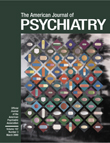Screening for Depression in Mothers Bringing Their Offspring for Evaluation or Treatment of Depression
Abstract
OBJECTIVE: Numerous studies have shown that the highest risk for first onset of depression occurs in women of childbearing years and that there is a strong association between lifetime rates of depressive disorders in mothers and their offspring. This association is found regardless of whether the mother or child is the targeted patient. However, little is known about rates of current depression in mothers who bring their offspring to outpatient clinics for evaluation and/or treatment of depression. This information might be useful in developing intervention strategies. METHOD: One hundred seventeen mothers bringing their offspring for evaluation or treatment for depression were screened with the Patient Problem Questionnaire to determine current symptoms of depression, anxiety disorders, and substance abuse as well as current psychiatric treatment. RESULTS: Thirty-six (31%) of the mothers screened positive on the Patient Problem Questionnaire for a current psychiatric disorder. Sixteen (14%) screened positive for current major depression, 20 (17%) for panic disorder, 20 (17%) for generalized anxiety disorder, two (2%) for alcohol abuse, and one (1%) for drug abuse. In addition, 50 (43%) of the mothers had psychiatric symptoms that did not meet the diagnostic threshold for any of the above disorders. Twenty-six (22%) of mothers expressed suicidal ideation or intent. Only five (31%) of the 16 mothers diagnosed with major depression were currently receiving any psychiatric treatment. CONCLUSIONS: A substantial number of mothers bringing their offspring for evaluation or treatment of depression were themselves currently depressed and untreated. The treatment of depressed mothers may help both the mothers and their depressed offspring.



